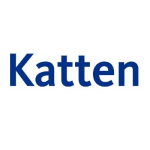In Universal Standard Inc. v Target Corp. (S.D.N.Y., No. 18 Civ. 6042), the US District Court for the Southern District of New York addressed the question of whether sharing attorney-client privileged communications with a public relations firm destroys that privilege. The court found that Universal Standard waived the privilege by including its public relations firm, BrandLink, in emails discussing strategy related to the lawsuit.
By way of background, Universal Standard is a "size-inclusive clothing brand," owning a federally-registered 'Universal Standard' trademark. Universal Standard sued Target for trademark infringement and unfair competition, alleging that Target wilfully infringed upon the Universal Standard mark by offering for sale its own line of women's clothing called 'Universal Thread,' and allegedly using Universal Standard's brand concept. Universal Standard claimed that individuals would mistake Target's line of clothing for the "genuine high-quality Universal Standard products," damaging its reputation.
Target had raised questions about the content of specific emails, and, in response, counsel for Universal Standard asserted that the emails were privileged. Target disagreed, arguing (i) that Universal Standard waived any privilege as to the emails by failing adequately to describe the communications on its initial privilege log; (ii) that any attorney-client privilege was waived when the documents were voluntarily "disclosed to third-party BrandLink"; and (iii) that the communications are not protected attorney work-product.
Rejecting various arguments made by Universal Standard where third-party disclosure did not waive privilege, the court concluded that that the communications at issue were not protected by the attorney-client privilege. The court explained that information shared with a third party with specialised knowledge required to facilitate understanding between attorney and client (e.g. an accountant or translator) can preserve the attorney-client privilege. However, in the matter at hand, the emails involved public relations strategy regarding the lawsuit, which Universal Standard could have relayed directly to attorneys without the need for BrandLink's assistance. The court also found that the emails were not protected by the work product doctrine, because according to the court, Universal Standard provided only a "conclusory" argument that the emails were documents prepared in anticipation of litigation.
This case serves as a reminder to be thoughtful about who is included in communications between client and counsel.

|

|
Karen Artz Ash |
Jerry Jakubovic |
Katten Muchin Rosenman LLP
575 Madison Avenue
New York, NY 10022-2585
United States
Tel: +1 212 940 8554
Fax: +1 212 940 8671












